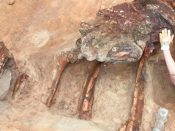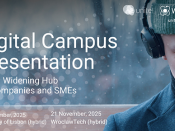Por João Coelho (LOLS, IBEB).
Abstract: The development of optical models of the human eye and their implementation in optical design software creates effective ways to simulate the eye’s behavior under different conditions and to introduce and analyze the effect of other optical elements. This potentially helps us to develop new optical techniques for studying the eye as well as to simulate more complex situations such as laser dazzle.
Laser dazzle gained public awareness due to the increase in availability of handheld visible wavelength lasers with powers well above laser pointers traditionally used for presentations. A few years ago, these devices appeared as state of the art of force protection research, nowadays, however, civilians have generalized their use. The high number of reports of dazzle events in civil aviation is pushing research to study the possible effects on vision (and task performance) of a person being dazzled and also ways to protect from it. In this scope, NATO created a research study group (SET-198) to evaluate the impact of dazzling.
In this talk, based on FCUL participation in SET-198, it will be presented an optical simulator of the human eye and its application to laser dazzle events. The simulator combines optical design software (ZEMAX) with a scientific programming language (MATLAB) and allows the user to implement and analyze a dazzle scenario using practical, real-world parameters. Contrary to conventional analytical glare analysis, this work uses ray tracing and the scattering model and parameters for each optical element of the eye. The overall simulator’s calibration, validation, and performance analysis are achieved by comparison with a simpler model based upon both CIE disability glare data and human trials data. Results demonstrate that this kind of advanced optical eye simulation can be used to represent laser dazzle and has the potential to extend the range of applicability of analytical models.
Short Bio: João Coelho received his engineering degree in Physics and Materials Engineering in 1992 from Nova University of Lisbon (Portugal) and his Ph.D. degree in Physics Engineering at the Technical University of Lisbon in 2003. He was a researcher at INETI, Lisbon (1991-2009) and since 2009 he works at the Laboratory of Optics, Lasers and Systems, FCUL, Lisbon, where he is an integrated member of the Institute of Biophysics and Biomedical Engineering (IBEB). He also collaborates with the Institute of Astrophysics and Space Sciences (IA). In 2018 he become vice-coordinator of IBEB, where he was already (since 2016) coordinator of the thematic line “Cancer Therapy and Drug Delivery”.
His research interests include lasers in materials processing, biomedical engineering, optical design and optical metrology. In this fields he has participated and is participating in several national and international research projects. In 1996 he received the third place in the Award Innovation Young Engineer 1996 given by the Portuguese Order of Engineers (Ordem dos Engenheiros). In 2017 he received a SET Panel Excellence Award, for is excellent contribution to the SET 198 Task Group on “Visible Laser Dazzle Effects and Protection” that enhanced the visibility of the SET Panel and is a major benefit for the NATO community (NATO 2017). He is a member of the Portuguese Society of Optics and Photonics (SPOF).




















